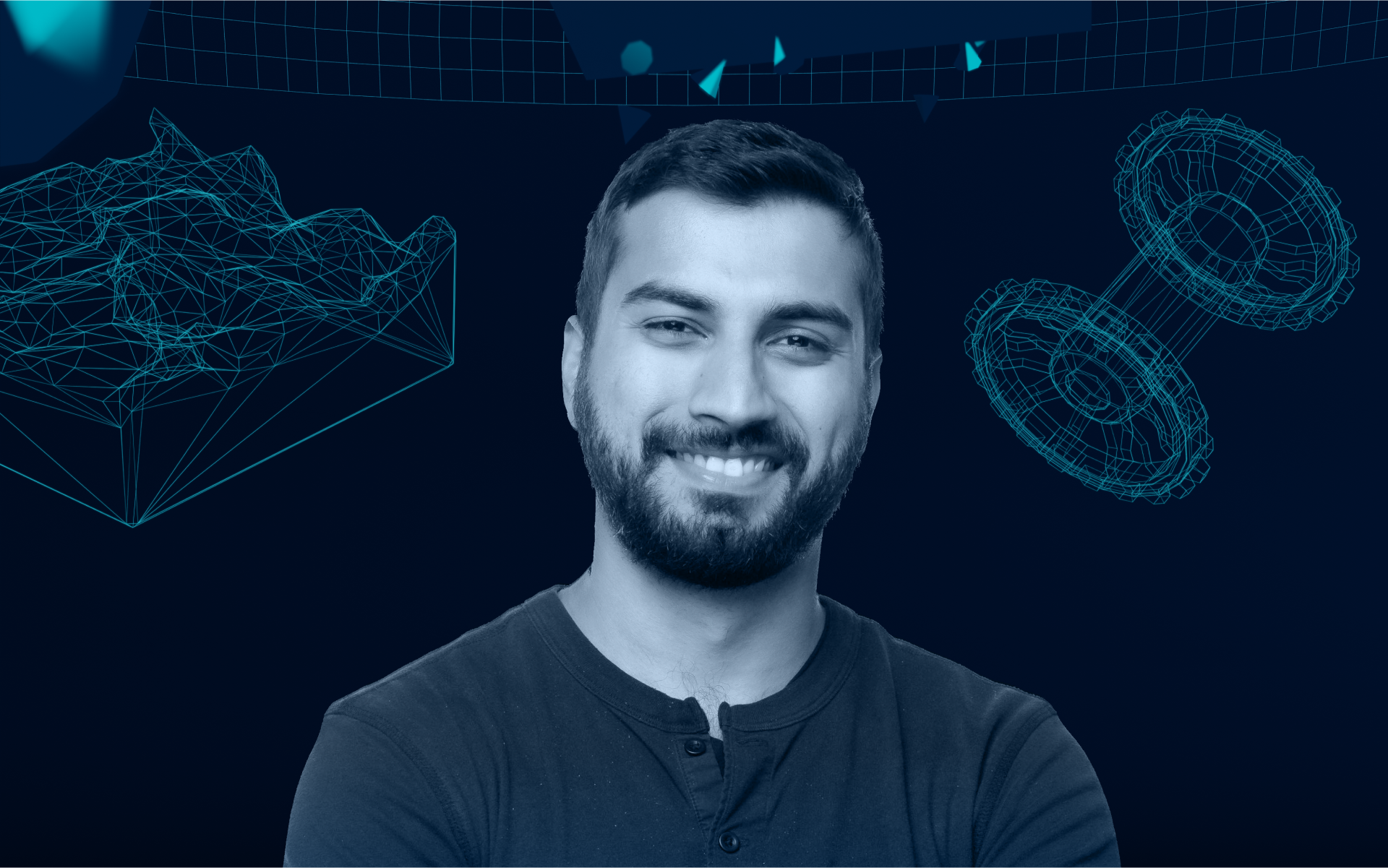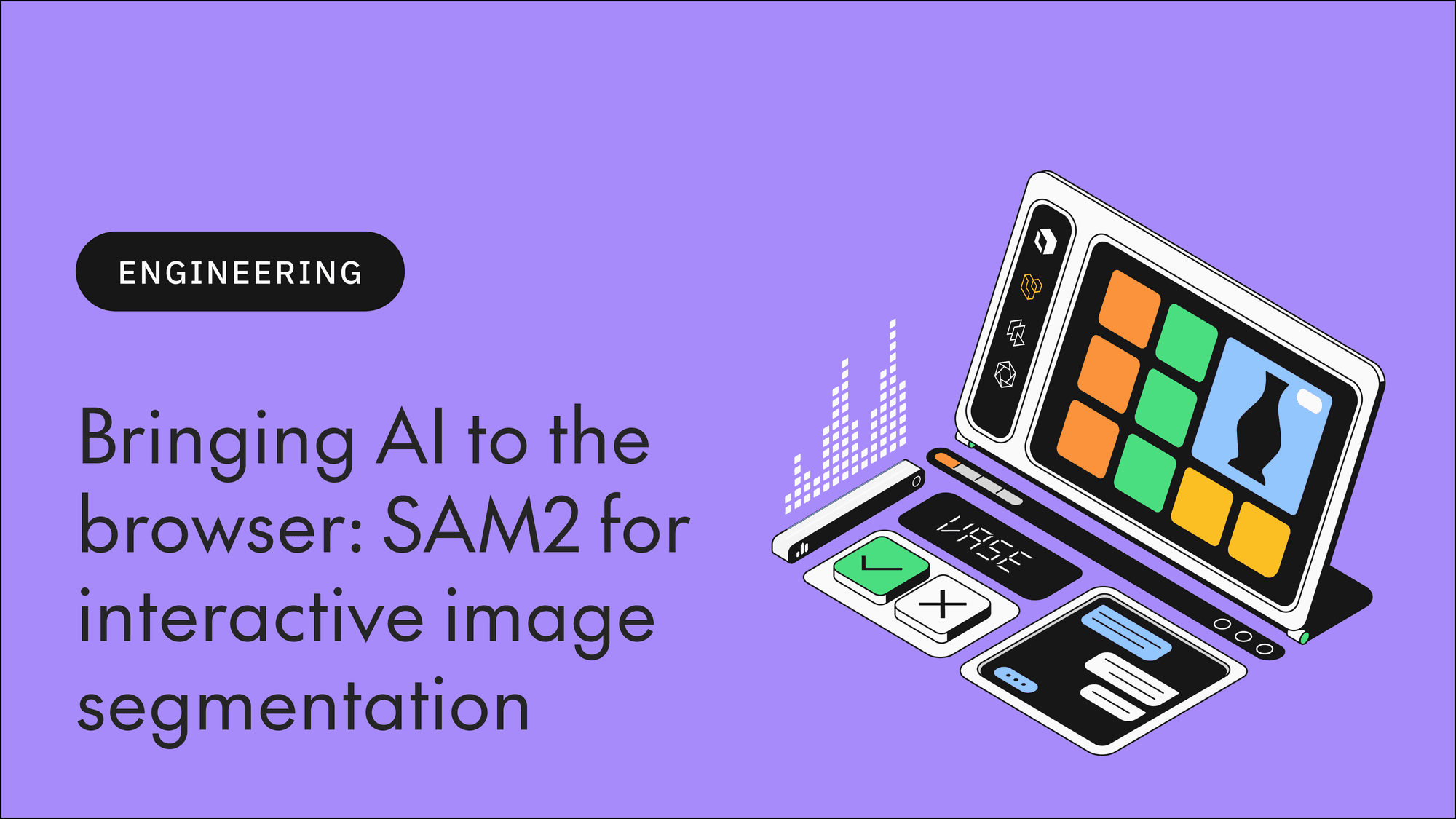Labelbox•May 29, 2021
Labelboxer Spotlight: Rohan Agrawal, Senior Engineering Manager

In this spotlight, we’re getting to know Rohan Agrawal, a Senior Engineering Manager based in San Francisco. He has worked at Labelbox for just over a year and currently leads multiple engineering teams at the company.
What has your journey been like as an engineer?
I lead a few of our engineering teams here at Labelbox. I’ve been here for a little over a year, and as with most hyper-growth startup companies, my role has been evolving. I came in leading the Perception team, which works on our web editor, but I’ve worked across almost every team and product area, including Orchestration, which is our labeling operations and labeling queue, and Workspaces, which is the core data management, and Diagnostics as well. I’m currently also helping lead our DevOps and Core Infrastructure team.
Before Labelbox, I worked at Cruise, which is a self driving car company based in San Francisco. I joined the mapping engineering team as the second engineer on the team, and worked on a lot of the core products there. That’s also when I started working in management. I was lucky to lead an incredible team, and helped grow the organization to nearly forty people. Before Cruise I was a software engineer at Lyft and Cisco.
What got you into engineering?
I have a bit of a non-traditional background as a software engineer. I grew up seeing my parents work at companies such as Silicon Graphics and Cisco and witnessing the evolution of various technologies — my mom was a software engineer and my dad was a hardware engineer — but I got my undergraduate degree in Business. I fell in love with engineering after I graduated and started working in the software industry.
My first job after college was in sales at a database company called Aerospike. While I enjoyed selling the product, I found that I was always curious about how it was built and the technical problems being solved. After a certain point, I realized I had an innate desire to be creative and build something from scratch rather than sell or market an existing product. So I took the leap — I left that sales job and embarked on a year and a half-long journey of teaching myself to code and doing a bunch of online courses and boot camps. And that eventually led to my first software engineering job at Cisco.
There are a number of self-taught engineers here at Labelbox and in the industry. It's not something that is really possible in a lot of fields yet, so it's a blessing that our industry supports that.
What made you want to work at Labelbox?
I've always been interested in platform technologies that enable the proliferation of new business solutions with real-world impact — for example, the web browser or the smartphone. My work at Cruise made me aware of the specific problem of AI development and computer vision. I started to learn about the various components that go into building the systems that enable cars to drive themselves. A core part of that is machine learning — detecting objects within images and sounds — which takes a vast amount of data, massive, complex labeling pipelines, and a way to manage and effectively utilize the enormous amounts of data generated by the vehicles every day.
When it was time to move on from Cruise, I wanted to work in an early stage startup that was building a platform for emerging technologies such as AI. Labelbox was kind of a match made in heaven. I knew the business potential of what they’re building, but what got me really excited was seeing how the Labelbox platform is applicable to a wide variety of industries.
What’s unique about engineering at Labelbox?
Labelbox is a core infrastructure company — we’re building a platform that other companies build on. Some of the key engineering challenges that we focus on revolve around providing a reliable framework for developers so they can build their systems on top of it. One aspect of that is creating an easy-to-use developer-facing API set, an intuitive data management system, and making sure the platform facilitates natural problem solving and iteration. Another aspect is the sheer volume of data it takes to train an AI model, coupled with the need to have highly accurate outputs from the Labelbox system.
Another key problem is that there’s no one-size-fits-all system for enterprise AI. Our customers are building very specific algorithms that require specific labeling solutions. Labelbox has to be incredibly flexible to support this wide variety of use cases and usage patterns. Our job as engineers is to make sure that the platform provides a reliable, beautiful experience for all our customers. It’s quite a technical challenge.
What have you learned during your time at Labelbox?
One thing I’ve learned about is the sheer number of industries and companies that can be transformed by machine learning. It was surprising to me how many different ways computer vision and NLP can be used to drive business value — which is great for us because we’re right in the middle of that wave, watching it happen. We’re seeing customers build robotic farming equipment, automated checkouts, and hard hat detection for construction safety.
The AI revolution is this entirely new emerging industry, but it’s very similar to the emergence of traditional software and web development in the past couple of decades. If you were creating a web application in 2005, it was a much more difficult task than it is now, because we didn’t have a lot of the tools and systems we have today. A lot of things that people take for granted today just didn’t exist fifteen years ago. Building a web app then is similar to what it’s like to create an AI application today. It’s a new technology paradigm with a variety of novel, unsolved pain points. But by 2030 or sooner, it’ll be easy, because we’ll have technologies and processes in place that support AI development. It’ll be commonplace and business as usual to build an AI application — that’s the vision that we’re trying to realize at Labelbox.
Which Labelbox value resonates with you the most?
Making customers win. I think it really highlights the goal that we have as a company, which is to enable the development and maturity of AI solutions driving real business value. Ultimately, we're successful as a company if, in a few years, we see AI solutions positively impacting people's lives and businesses.
We’re enabling rapid agriculture development and higher crop yields, better tumor detection, advances in drug discovery and development, and retail efficiency.
— Rohan Agrawal, Labelbox
If we see those real advances in our day to day lives, that's when we know that Labelbox has been successful, because we will have made our customers win.
What are you excited about currently?
I'm excited about this emerging space called ML Ops in the AI infrastructure space. Labelbox is invested in the data collection and curation part of the process — data labeling is the flagship of what Labelbox does. In ML, the process of creating training data, trying various algorithms, and using that training data to develop an automated AI solution is currently experimental. ML Ops is the space that’s turning that process into a repeatable system. It’s the beginning of making AI development into a systemized process — just like software development has a predictable process. ML Ops is going to help engineering teams find an efficient way to develop AI solutions, and that’ll enable the proliferation of AI in general.
The other thing I’m excited about goes back to Labelbox as a training data platform. We’re starting to see a lot of solutions out there for curating training data and Labelbox is emerging as a best-in-class, industry-leading product. Our customers are building more sophisticated models with huge volumes of data, and they’re optimizing labeling workflows and having large labeling teams create training data systematically at scale. We’re innovating a lot on our product, and within the next year and a half we’re going to have a platform that helps teams scale up their labeling efficiency by 10X.
Why should engineers come to Labelbox?
We are very much an ego-less culture. One thing I’ve really enjoyed about working at Labelbox is the culture of collaboration — we work together for the common good. Humility is a core value here. There’s also a huge opportunity for ownership for engineers.
We’re a small company that’s tackling an expanding amount of scope, so it would be great for engineers who are looking for opportunities to learn, own products end to end, and drive a lot of progress toward building an entirely new industry.
— Rohan Agrawal, Labelbox
I mentioned that by 2030, AI will have progressed to the point where we’ll have common technology to support it. Labelbox is poised to be one of those core pillars that enables AI. Engineers who join us now are going to be part of something truly special and game changing.
Want to join the Labelbox team? Explore our open positions and apply today. Stay tuned in the coming months for more spotlights on Labelbox employees!

 All blog posts
All blog posts

